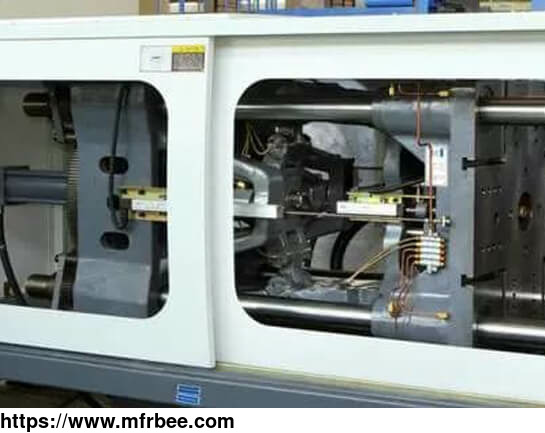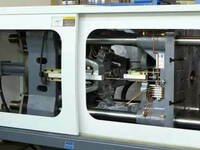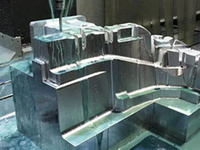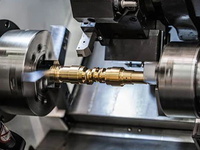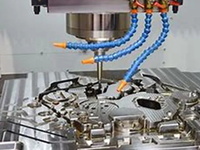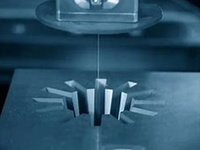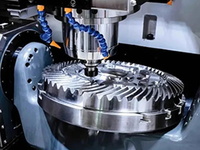Injection Molding
Product Quick Detail
- Minimum Order
- 1
- Place Of Origin
- Dongguan, Guangdong, China
- Packaging
- N/A
- Delivery
- 3 days+
Specifications
Injection Molding
Over 20 years in China prototype precision plastic injection mold design services covering a wide range of plastic injection mold and molding technology for electronic, cosmetic, food & medical,
household, and industrial products with engineering assistance and an intensive list of secondary operations to customers' custom plastic injection molding process successful.
As an experienced injection molding supply company, we specialize in injection, insert, and over-molding for varieties of plastic products in different industries such as injection molding
automotive industry, and plastic injection molding medical industry with sophisticated capabilities and thorough knowledge of precision prototyping and manufacturing offering solutions to
manufacturing needs. From prototypes manufacturing to high-volume production, our state-of-the-art equipment and facility give the flexibility to deliver high-quality molded products with quick
turnaround times.
Injection Molding Overview
Electronic component
Injection molding service is instrumental in the production of a multitude of electronic parts, from tiny components in your smartphone to larger parts in home appliances, offering precision and
consistency on a mass scale.
Houshold product
From kitchen utensils to children's toys, injection molding facilitates the creation of durable and cost-effective goods that enhance our everyday living experience.
Electronic products with over mold
These are products that require an additional layer of material over the original part, providing added functionality, such as shock absorption, grip, or aesthetic appeal.
Medical products
In the medical field, injection molding proves to be invaluable. It aids in the production of a variety of medical products, from surgical instruments to implantable devices, adhering to stringent
quality and hygiene standards.
Medical products
Industrial product
Precision injection molding is used to manufacture a wide range of products, from automotive parts to construction materials, showcasing its versatility and efficiency.
How Does Injection Molding Work?
Injection molding is a manufacturing process used to produce parts in large volumes. It is most commonly used in mass-production processes where the same part is being created thousands or even
millions of times in succession.
Here's how it works:
Material Selection: The process begins with the selection of a material, which is typically in the form of small pellets. The material is chosen based on the specific requirements of the part being
produced.
Melting: The pellets are fed into the precision injection molding machine and pushed towards the mold by the injection unit. During this process, the material is melted by heat and pressure. The
plastic is heated until it is molten.
Injection: The molten plastic is then injected into the mold at high pressure. The mold is a custom design that corresponds to the shape of the desired part.
Cooling: Once the plastic is inside the mold, it begins to cool and solidify into the shape of the desired part.
Ejection: After the part has cooled, it is ejected from the mold. The mold then closes again and the process begins again.
Trimming and Inspection: Any excess plastic that remains after the part has been ejected is trimmed off. The parts are then inspected to ensure they meet the required specifications.
This process allows for high levels of accuracy and can be used to create complex and intricate parts. It is also highly efficient, making it a popular choice for mass production.
Injection Molding Advantages
Injection molding has several advantages, including:
High Production Speed: Injection molding machines can produce high volumes of the same object quickly, making it ideal for mass production.
Precision: Injection molding can produce complex and intricate parts with a high level of accuracy and consistency.
Low Labor Costs: The process is largely automated, which can significantly reduce labor costs.
Flexibility: A wide variety of materials can be used in the injection molding process, including various types of plastic and metals.
Low Waste: The injection molding process produces very little waste, as any leftover material can be reused or recycled.
Finished Appearance: The products produced by injection molding often require no further finishing, as the process can create a high-quality surface finish.
Design Flexibility: Injection molding allows for a high level of design flexibility, as the molds can be created to produce almost any shape or size.
Color Control: Colors can be easily controlled and changed with injection molding, allowing for a wide range of color options for the final product.
High Strength: Parts made from injection molding can be designed with fillers which can reduce the density of the plastic while adding greater strength to the part.
Efficient: The process is highly efficient, with a high production output rate, making it more cost-effective for mass production.
Injection Molding Process
The injection molding process involves several key steps:
Clamping: The first step in the injection molding process is the clamping of the mold. This is done to secure the mold during the injection and cooling process.
Injection: The polymer is heated until it becomes a liquid and then injected into the mold. The injection is done at a high pressure to ensure that the material fills the mold completely.
Dwelling: After the mold is filled, the machine applies pressure to ensure all cavities are filled and to prevent the material from retracting as it cools.
Cooling: The mold and the material inside it are then cooled. As the material cools, it solidifies and takes the shape of the mold.
Ejection: Once the part has cooled and solidified, it is ejected from the mold. A new cycle begins and the process is repeated.
Trimming and Finishing: After the part is ejected, it may undergo further processing such as trimming of excess material and finishing processes to achieve the desired final appearance and texture.
Throughout the process, parameters such as pressure, temperature, and cooling time are carefully controlled to ensure the quality of the final product. The process is typically automated and can
produce high volumes of identical parts quickly and efficiently.
Injection Molding Video
Injection molding is a highly versatile method of producing goods in large quantities, with an exceptional level of detail and precision. It involves injecting molten material, typically plastic,
into a mold, which then cools and hardens to form the desired shape. The process is favored for its ability to produce complex and intricate parts with a high level of consistency and accuracy.
If you want to buy injection molding parts, please contact us.
As a prototyping company, we will do our best to meet all the needs of customers.
- Country: Afghanistan
- Contact: fathompreci sion
